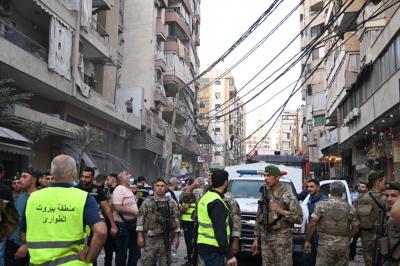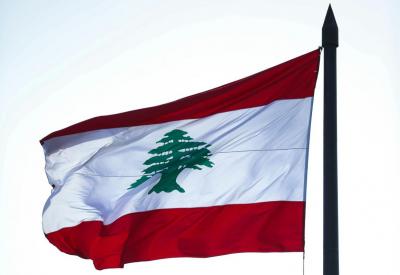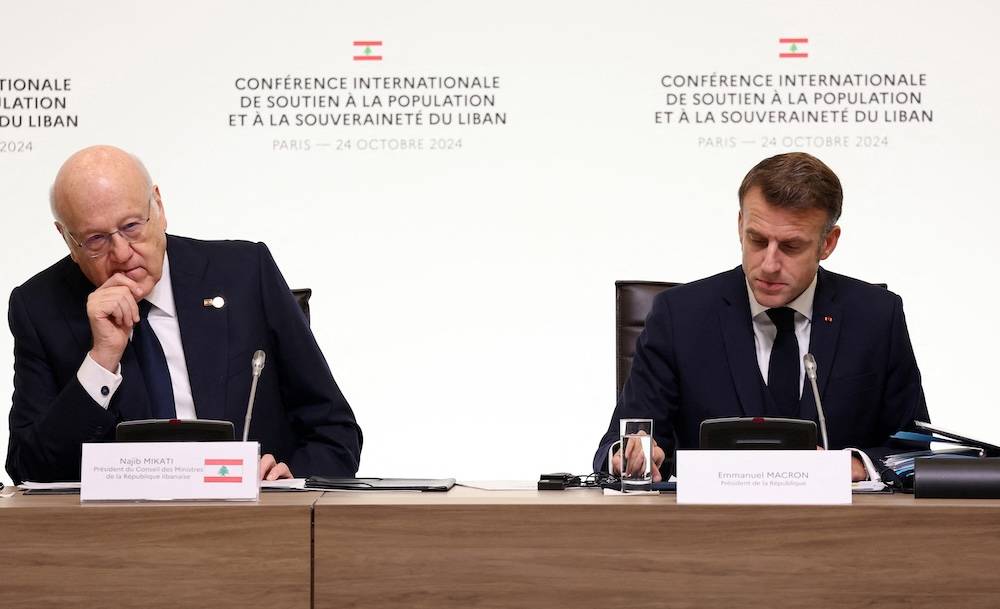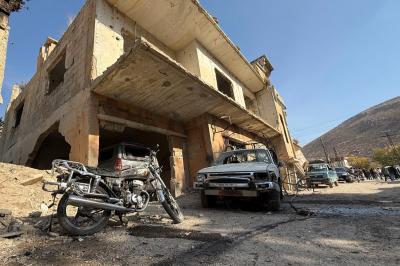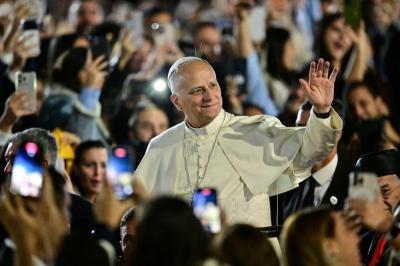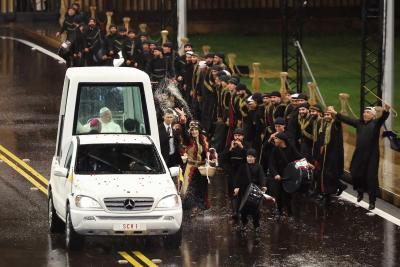“We will stand by the Lebanese people in rebuilding a free and sovereign Lebanon," declared Emmanuel Macron at the opening of the Conference for Lebanon in Paris, attended by high-level representatives from 70 countries. Lebanese Prime Minister Najib Mikati, seated beside the French President, was busy going through his notes. "The war must stop as soon as possible," added the French President.
The primary goal of this support conference for Lebanon—plunged into conflict between Israel and Hezbollah for a month—was to raise at least $400 million in humanitarian aid for a country severely impacted by the Israeli army’s attacks.
Emmanuel Macron announced that France would allocate 100 million euros for Lebanon, a friendly nation with which it shares strong historical ties. Ultimately, the countries gathered in Paris pledged 800 million euros for humanitarian aid and an additional 200 million for the Lebanese army.
Beyond financial aid, there was a palpable sense of urgency on the faces of participants at the international meeting. The attendance of UN Secretary-General Antonio Guterres did not go unnoticed.
France conveyed several key messages during the conference: "Reaffirming the commitment to a ceasefire and rallying the international community toward that goal," a French diplomat reported. "Secondly, providing urgent humanitarian assistance to the population, with over 800,000 people displaced," according to the UN. Thirdly, foreign delegations appeared to "support the need for Lebanon's sovereignty by resolving the conflict along the Blue Line" (the border with Israel) and addressing "the country’s institutional crisis—without a president for two years."
Lebanon's profound challenges were at the forefront of everyone’s minds. The economy, on the verge of collapse, is teetering dangerously. The ongoing hostilities threaten to further destabilize the country’s economy, already weakened by years of crises, noted a UN source. The IMF projects a 9.2% drop in Lebanon’s GDP in 2024 if the conflict continues through the end of the year, posing a catastrophic economic and humanitarian crisis with unpredictable consequences.
On the political front, following diplomatic missteps by the French President regarding the Middle East conflict, Emmanuel Macron emphasized the need for the UN to act in favor of displaced civilians in southern Lebanon. He also condemned Israel’s actions against the United Nations Interim Force in Lebanon (UNIFIL). Meanwhile, French Defense Minister Sébastien Lecornu expressed concern and urged all stakeholders to "avoid an imminent civil war" in the Land of the Cedars. Indeed, Lebanon is experiencing a violent new societal shock amid the escalation of Israeli military operations.
Please post your comments on:
[email protected]
 Politics
Politics
